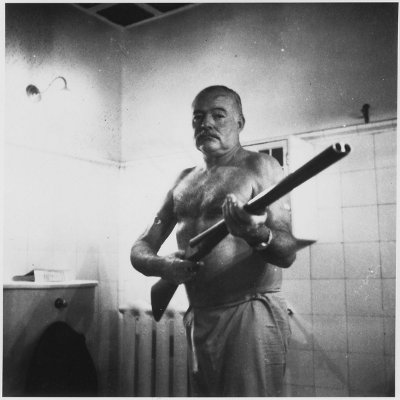Papers Written While Drunk
Posted by Tom Leinster
I’m currently reading a preprint by a deservedly very well-respected and highly-reputed mathematician. It’s enjoyable, inspirational, and wonderful. The ideas that it expresses have been haunting and taunting me for years.
For various reasons, I have the impression that it was not wholly written while the author was wholly sober. That’s OK; I’ll judge the paper for what it is, not on how it was written. But it leads me to wonder: how common is this? In literature, it’s a well-established tradition to the point of cliché. For instance, here’s Ernest Hemingway —
— giving a cocktail recipe for difficult political times (1937), “to be enjoyed from 11:00am on”. You can find countless examples of fiction writers enthusing about chemically-assisted escape from the so-called real world.
But mathematics prides itself on sharpness and precision in counterpoint to creativity. We love to say that we’re more creative than poets, but a piece of mathematics is in deep trouble if it’s logically wrong. So where does drugged, drunk or hallucinatory mathematics fit into our mathematicians’ culture?
Posted at January 24, 2017 11:44 PM UTC

Re: Papers Written While Drunk
I think I understand what you mean by the word “drugged”, but it is important to point out that any theory of how “drugged … mathematics fit into our mathematicians’ culture” will need to distinguish between very different types of drugs. Most mathematicians I know do most of their mathematics while on caffeine, and certainly some mathematicians use more powerful stimulants like amphetamines. The book How the Hippies Saved Physics by David Kaiser documents, among other things, the important role of psychedelics in the creation of modern theoretical physics. This is in addition, of course, to the regularly-scheduled sessions in which mathematics is discussed while using, as Wikipedia puts it, one of the most widely used recreational drugs in the world (second, I think, only to caffeine), specifically the third most popular drink overall, after water and tea.